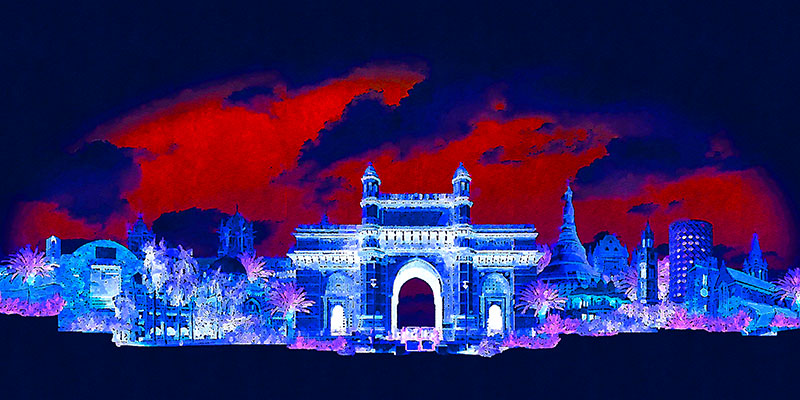With the collapse of Tinyowl, Housing, Purple Squirrel and Doormint over the past year, many seem to have a pessimistic view of the Mumbai and the Powai startup ecosystem, but is that really the case?
“They say it is jinxed,” said one startup founder to another sitting at the next table at a cafe in Mumbai’s Powai, or Powai Valley, as the IIT Bombay startup enthusiasts like to call it.
What could possibly be jinxed in a resilient city like Mumbai?
It transpired that they were talking about Supreme Business Park that stands tall and robust against rugged peaks, which is rumoured to be cursed. But doesn’t Supreme Business Park also house many successful brands? So what is fanning this whisper?
Those of us who have been associated with the startup ecosystem know that Supreme Business Park has also been home to startups like TinyOwl, Purple Squirrel, Doormint, and of course, Housing.
In 2015, these startups were the poster boys of the Mumbai startup ecosystem. They were answers to Bengaluru startups like Swiggy.
“Tinyowl actually had a better UI/UX and the experience was much better. You never know who wins the bets in the startup ecosystem. It all boils down to execution,” says an IIT Bombay startup enthusiast, and someone who has watched the Mumbai startup space grow.

Yet the truth remains that the land of several first-generation business houses and entrepreneurs doesn’t seem to have become a startup hub like Bengaluru or even Delhi NCR for that matter.
Since the downward spiral seen by a few startups, many cannot but wonder if new-age tech startups can even survive in the city. However, Kashyap Deborah, Founder of HyperTrack and author of the book, The Golden Tap, believes otherwise. A supporter of the Mumbai startup ecosystem, he says,
“I have built tech companies out of Powai and New Delhi. Have seen success in achieving our goals in both instances. To start with, a tech startup really needs a few great people with a common purpose, and not a whole army of people. Mumbai has enough depth of talent and economic viability that it is possible to put this together.”
But what does the data say?
According to YourStory Research Data, in 2015 a total of 150 startups in Mumbai were funded across different stages amounting to a whopping $1,027,131,200. Of these, 77 were early stage or pre-Series A startups, which were funded $81,581,200.
There were 23 startups in Mumbai that were Series A funded a total of $96,400,000. Over 19 startups raised Series B funding totalling $212,650,00, five startups raised Series C funding amounting to $230,000,000, and three received Series D funding worth $166,500,000.
In 2016, the total number of startups funded in Mumbai was 85, which received a total of $851,918,500. Of these, 63 were early stage or Pre-series A funded startups, which attracted $44,618,500. Over 14 startups raised Series A funding of $80,140,000, and nine startups raised Series B funding of $59,950,000. Two startups raised Series C funding amounting to $20,000,000 and five raised Series D funding amounting to $193,900,000.
In the first quarter of this year, 11 startups have already raised Pre-Series A funding of $5,598,000, seven have raised Series A funding of $23,770,000, six have raised Series B funding amounting to $51,300,000, and one Series D funding of $21,000,000 has taken place.
Is that all there is to Mumbai?
To this question Kashyap says,
“Let me give you other examples: Cleartrip, Ebay, JustDial, Billdesk, DirectI, BrowserStack have done phenomenally well at good scale. Due to the inherent business culture, Mumbai has an advantage over Delhi and Bengaluru in my opinion.”
Indeed, there are several thriving startups. For example, there’s BookMyShow, a company run by a Mumbai advertising professional, Ashish Hemarajani. He has been able to build a monopoly of sorts in the ticket booking space.
There is Nykaa, which has raised significant growth capital and, according to its founder Falguni Nayar, it is all set to crack an IPO in 2018. There are second-generation entrepreneurs like Ronnie Screwvala, who even co-founded an edtech startup out of Mumbai, UpGrad.
And not to forget Freecharge, one of 2014’s and the startup ecosystem’s biggest exit, had started up in Mumbai, and so did Ola. However, the latter shifted base to Benglauru.

Not restricted to one location
The figures state that while the early stage rounds are few and far from one another, the number of later stage rounds haven’t stopped per say. Also, when it comes to understanding whether a startup can thrive and survive, funding isn’t the only parameter.
Between 2016 and 2017, over 16 startups have seen exits in the form of acquisitions. While these might include Housing, Tinyowl, and Doormint, it nevertheless does show an exit. And seven startups have shut down.
Ajeet Khurana, the former director of IIT Bombay’s Incubator SINE who is now an angel investor, an advisor with Kalaari Capital and a known mentor in the Mumbai startup ecosystem, believes that in many of the gloom and doom cases, the fault wasn’t with Mumbai or the ecosystem in Mumbai. He says,
“It is the function of any business and startup cycle, when new-age tech startups are born there are many who follow similar business models. Then it becomes a function of who can change consumer behaviour the quickest and execute the fastest. The remaining get consolidated or die.”
This just isn’t restricted to a geography or a location. There are several startups across the…

